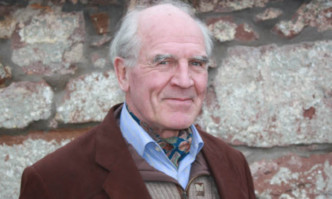The untimely death of Maitland Mackie farmer, entrepreneur, innovative thinker, farming leader leaves a series of gaps in so many spheres of Scottish life.
In essence he was a modern renaissance man who led, challenged, thought radical thoughts, created a highly successful business as well as running a1,700-acre farming enterprise at Westertown, near Inverurie.
Dynamic, cerebral, forward thinking, far-sighted are all adjectives that applied to the man who founded Mackie’s ice cream and turned it into an international brand.
He was also the architect of farm assurance, a concept that was doubted at the time, but which has become the undisputed symbol of the highest standards of animal welfare and livestock husbandry in Scotland.
These differing strands represent the depth and width of Maitland Mackie’s interests andmirror the contribution he made not only to Scottish agriculture, including NFU Scotland, but to a range of academic and scientific pursuits.
I was particularly fortunate as a farming writer to meet and interview Mr Mackie over the years and report on his thinking and views. The latter did not always chime with naturally conservative farmers, but came to fruition and marked fundamental changes in the way the farming industry worked and how the union represented its members.
In particular as vice-president of NFUS he lost out on his challenge for the presidency in 1990 to Wigtownshire sheep farmer John Ross Mr Mackie played a pivotal role in shifting union policy from the purely political, lobbying sphere to adopting a more market- orientated philosophy against a background of a changing Common Agricultural Policy and UK Government thinking.
It was typical of the man that he saw and felt the winds of change before many of his colleagues. The fact that he did not gain the presidency reflected the caution that many in the inner circle of the union had about unleashing a figure who was not afraid to question the accepted way of thinking and rock the boat, constructively and thoughtfully.
It was not surprising given his inquiring mind, intellectual reserves and understanding of complex issues he served on many committees: Agricultural Food Research Council for two terms; as chairman of the Priorities Board for Research in Agriculture; as a member of the research committee of the Meat and Livestock Commission and governor of the Rowett Research Institute.
He also chaired the Scottish Agricultural College (SAC) and while he succeeded in putting the organisation on a more sound financial footing, he also set alarm bells ringing by pursuing what was seen by other research institutes as a predatory attempt to increase the college’s interests and sphere of influence.
The rationalisation of college campuses also prompted some predictable local reactions.
Characteristically, Mr Mackie led from the front boldly, but like James IV not always sending out a message that was unambiguously understood by supporters and critics alike.
And if he ruffled some feathers his proactive support and practical use of wind power at Westertown did not endear him to the anti-wind energy lobby it was impossible not to admire, respect and like an individual who was constantly engaging, open and forthright.
As I learned on umpteen occasions, Maitland Mackie was a journalist’s dream keen to share ideas, happy to unveil them to a wider public, to test them and not be constrained by the “aye been” philosophy.
He had an unfailing capacity to see the bigger picture and had a strong and pragmatic sense of the importance and value of rural Scotland, embedded in its communities.
His vision for wind power partly rested on communities being the drivers and beneficiaries.
Acclaimed, distinguished and recognised for his role in public life, Maitland Mackie never lost sight of his family, offering paternal inspiration and dedication alike.
He was a charismatic individual who has left a significant imprint on many organisations, and made a lasting impression of countless individuals.
